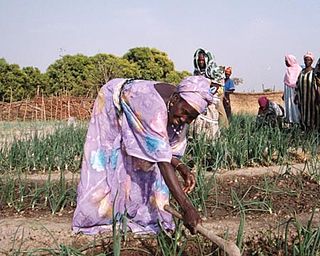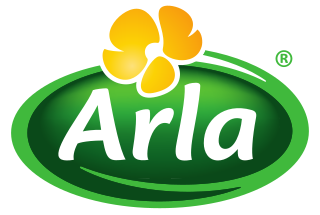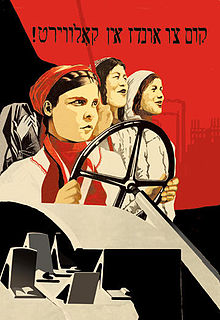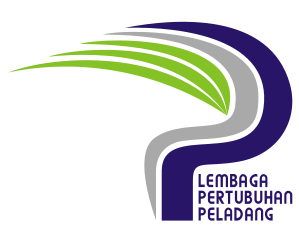 W
WAn agricultural cooperative, also known as a farmers' co-op, is a cooperative where farmers pool their resources in certain areas of activity. A broad typology of agricultural cooperatives distinguishes between 'agricultural service cooperatives', which provide various services to their individually farming members, and 'agricultural production cooperatives', where production resources are pooled and members farm jointly. Examples of agricultural production cooperatives include collective farms in former socialist countries, the kibbutzim in Israel, collectively governed community shared agriculture, Longo Mai co-operatives and Nicaraguan production co-operatives.
 W
WArla Foods amba is a Danish multinational cooperative based in Viby, Denmark, and the largest producer of dairy products in Scandinavia.
 W
WThe Central Union of Agricultural Co-operatives , in short JA-Zenchu (JA全中), is an independent administrative Japanese body within the Japan Agriculture (JA) Group which determines policy and administrates the group. Its legal status was originally a Recognised Corporate Body under the control of the Ministry of Agriculture, Forestry and Fisheries (MAFF), but since 2002 has become a Special Civilian Corporate Body.
 W
WCollective farming and communal farming are various types of "agricultural production in which multiple farmers run their holdings as a joint enterprise". There are two broad types of communal farms: Agricultural cooperatives, in which member-owners jointly engage in farming activities as a collective, and state farms, which are owned and directly run by a centralized government. The process by which farmland is aggregated is called collectivization. In some countries, there have been both state-run and cooperative-run variants. For example, the Soviet Union had both kolkhozy and sovkhozy.
 W
WThe Soviet Union implemented the collectivization of its agricultural sector between 1928 and 1940 during the ascension of Joseph Stalin. It began during and was part of the first five-year plan. The policy aimed to integrate individual landholdings and labour into collectively-controlled and state-controlled farms: Kolkhozy and Sovkhozy accordingly. The Soviet leadership confidently expected that the replacement of individual peasant farms by collective ones would immediately increase the food supply for the urban population, the supply of raw materials for the processing industry, and agricultural exports via state-imposed quotas on individuals working on collective farms. Planners regarded collectivization as the solution to the crisis of agricultural distribution that had developed from 1927. This problem became more acute as the Soviet Union pressed ahead with its ambitious industrialization program, meaning that more food needed to be produced to keep up with urban demand.
 W
WCommunity-supported agriculture or cropsharing is a system that connects the producer and consumers within the food system more closely by allowing the consumer to subscribe to the harvest of a certain farm or group of farms. It is an alternative socioeconomic model of agriculture and food distribution that allows the producer and consumer to share the risks of farming. The model is a subcategory of civic agriculture that has an overarching goal of strengthening a sense of community through local markets.
 W
WCountrywide Farmers was an agricultural retailer that went out of business in 2018.
 W
WFarmers' Organization Authority (FOA) is a Malaysian government statutory body under the Ministry of Agriculture and Agro-based Industries, Malaysia.
 W
WFonterra Co-operative Group Limited is a New Zealand multinational publicly traded dairy co-operative owned by around 10,500 New Zealand farmers. The company is responsible for approximately 30% of the world's dairy exports and with revenue exceeding NZ$17.2 billion, is New Zealand's largest company.
 W
WKERAFED is the top-level co-operative federation of coconut farmers in the southern Indian state of Kerala. KERAFED is also a producer and marketer of products based on coconut. It is the largest producer of coconut oil in India.
 W
WKoyambedu Wholesale Market Complex (KWMC) is one of Asia's largest perishable goods market complex located at Koyambedu, Chennai. The market complex is spread over an area of 295 acres (1.19 km2). Inaugurated in 1996, the complex consists of about 3,100 shops, including more than 1,000 wholesale shops and 2,000 retail shops. Of these, 850 are fruit shops. It abuts the Poonamallee High Road and Nesapakkam Road. In Phase I, a wholesale market for perishables was developed in an area of around 70 acres (280,000 m2) by constructing 3,194 shops. The market has two blocks for vegetable shops and one each for fruit and flower shops. In Phase II, a textile market and in Phase III, a food grain market have been planned to be developed in the complex.
 W
WLantmännen is an agricultural cooperative and Northern Europe’s leader in agriculture, machinery, bioenergy and food products. Owned by 25,000 Swedish farmers, they have 10,000 employees, operations in over 20 countries and an annual turnover of SEK 45 billion. With grain at the heart of their operations, they refine arable land resources to make farming thrive. Some of their best-known food brands are AXA, Bonjour, Kungsörnen, GoGreen, Gooh, FINN CRISP, Schulstad and Vaasan. Lantmännen is founded on the knowledge and values acquired through generations of farmers. With research, development and operations throughout the value chain, they take responsibility from field to fork.
 W
WA moshav is a type of Israeli town or settlement, in particular a type of cooperative agricultural community of individual farms pioneered by the Labour Zionists during the second wave of aliyah. A resident or a member of a moshav can be called a "moshavnik".
 W
WThe South Korean National Agricultural Cooperative Federation was established in 1961 to enhance the social and economic status of its membership and to promote a balanced development of the national economy. Its role is divided into three areas: marketing and supply, banking and insurance, and extension services.
 W
WNorco Co-operative Limited is an agricultural supply and marketing co-operative based in northern New South Wales, Australia. Established in 1895, it sells products and services locally and internationally. Its 200+ dairy farm members supply over 200 million litres of milk to its two milk bottling factories and Ice Cream factory in Lismore, NSW. Its milk brands include "Norco", "FM", "Mighty Cool", "Real Iced Coffee" and "Tornado Shake". It also produces "home brand" milk and ice cream for Coles and Aldi, and has a fledgling Fresh Milk export business in China.
 W
WThe Oromia Coffee Farmers’ Cooperative Union (OCFCU) is a smallholder farmer owned cooperative union based in the Oromia region of south, central and west Ethiopia. Oromia is the largest of the nine states within Ethiopia and home to Addis Ababa, the capital of Ethiopia. Coffee accounts for approximately thirty-two percent of the value of all merchandise exports and Oromia accounts for more than sixty-five percent of the country’s total coffee growing lands. Furthermore, Oromia is the region where coffee first originated. The region is characterised by its unique native vegetation and tropical climate conducive to coffee bean growth. OCFCU is a democratic, member’s owned business operating under principles of International Cooperative Alliance and Fair trade and the Union plays a central role in the Ethiopian coffee marketing chain. The members of OCFCU grow, process and supply high quality, organic Arabica coffee for export.
 W
WRoyal FloraHolland, legally Koninklijke Coöperatieve Bloemenveiling Royal FloraHolland U.A., is a Dutch conglomerate of florists. It is one of the largest auction companies in the world. Royal FloraHolland is headquartered in Aalsmeer, with locations in Naaldwijk, Rijnsburg and Eelde.
 W
WSentraal-Suid Koöperasie (SSK) is an agricultural cooperative founded in 1931 by farmers in the Overberg region of South Africa. Originally known as the Swellendam-Heidelberg Koöperasie, the name was changed to its current form in the 1980s. The head office of SSK is situated in Swellendam, the third oldest town of the Republic of South Africa.
 W
WSilver Fern Farms Limited is a New Zealand multinational meat company. It is owned in equal partnership by Silver Fern Farms Co-op Ltd, a cooperative of 16,000 New Zealand sheep, cattle and deer farmers and Shanghai Maling Aquarius Ltd. The company is New Zealand's largest livestock processing and marketing company. It has investments in manufacturing, meat processing, transport of live stock, export logistics and meat marketing, with associated companies including, New Zealand and Australian Lamb Company Limited, The Lamb Co-Operative, Inc, Robotic Technologies Limited, Livestock Logistics Nationwide Limited. Kotahi Logistics LP, Ovine Automation Limited, FarmIQ Systems Ltd, Primary Collaboration NZ Ltd and the Red Meat Profit Partnership.
 W
WA winemaking cooperative is an agricultural cooperative which is involved in winemaking, and which in similarity to other cooperatives is owned by its members. The members in a winemaking cooperative are usually vineyard owners, who deliver grapes to the cooperative, which is involved in production of wine from the grapes and the subsequent marketing activities.
 W
WThe National Federation of Agricultural Co-operative Associations , in short ZEN-NOH , is a federation of agricultural cooperatives in Japan. ZEN-NOH was formed in 1972 with the joining of the ZENHANREN group and the ZENKOREN group. ZEN-NOH consists of 1,173 agricultural cooperatives and federations that in 2004 had a combined revenue of $53.8 billion (USD). ZEN-NOH is involved in the marketing, tracking, and quality assurance of the products of its cooperatives. As of 2006, ZEN-NOH has declared that it will not participate in the research and development of genetically modified foods. ZEN-NOH is one of the world's largest importers of animal feeds and agricultural fertilizers. 70% of the sales of chemical fertilizers in Japan are handled by them. ZEN-NOH is also largely involved in the production of farming equipment, primarily tractors.